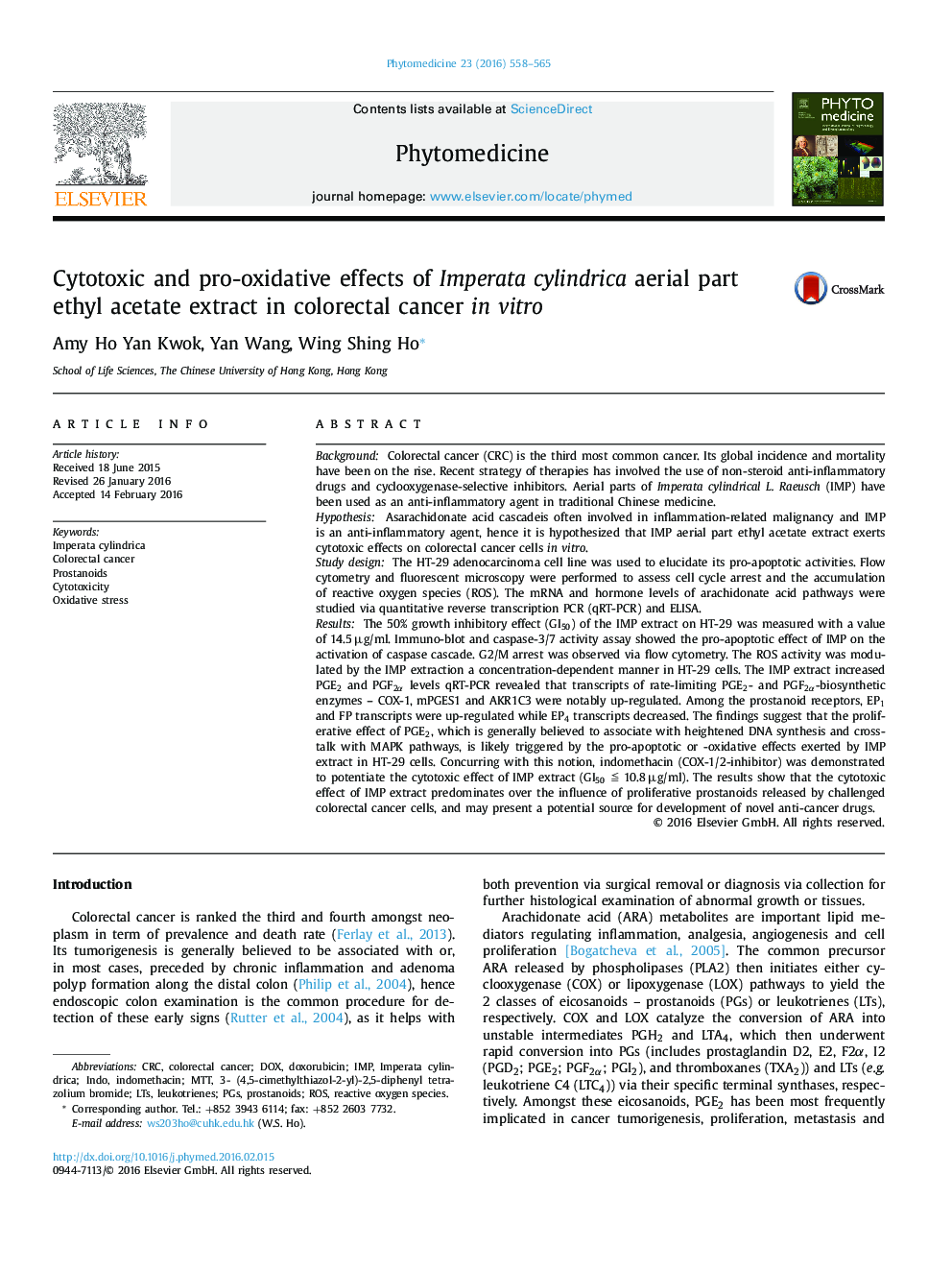| کد مقاله | کد نشریه | سال انتشار | مقاله انگلیسی | نسخه تمام متن |
|---|---|---|---|---|
| 2496262 | 1116117 | 2016 | 8 صفحه PDF | دانلود رایگان |
BackgroundColorectal cancer (CRC) is the third most common cancer. Its global incidence and mortality have been on the rise. Recent strategy of therapies has involved the use of non-steroid anti-inflammatory drugs and cyclooxygenase-selective inhibitors. Aerial parts of Imperata cylindrical L. Raeusch (IMP) have been used as an anti-inflammatory agent in traditional Chinese medicine.HypothesisAsarachidonate acid cascadeis often involved in inflammation-related malignancy and IMP is an anti-inflammatory agent, hence it is hypothesized that IMP aerial part ethyl acetate extract exerts cytotoxic effects on colorectal cancer cells in vitro.Study designThe HT-29 adenocarcinoma cell line was used to elucidate its pro-apoptotic activities. Flow cytometry and fluorescent microscopy were performed to assess cell cycle arrest and the accumulation of reactive oxygen species (ROS). The mRNA and hormone levels of arachidonate acid pathways were studied via quantitative reverse transcription PCR (qRT-PCR) and ELISA.ResultsThe 50% growth inhibitory effect (GI50) of the IMP extract on HT-29 was measured with a value of 14.5 µg/ml. Immuno-blot and caspase-3/7 activity assay showed the pro-apoptotic effect of IMP on the activation of caspase cascade. G2/M arrest was observed via flow cytometry. The ROS activity was modulated by the IMP extraction a concentration-dependent manner in HT-29 cells. The IMP extract increased PGE2 and PGF2α levels qRT-PCR revealed that transcripts of rate-limiting PGE2- and PGF2α-biosynthetic enzymes – COX-1, mPGES1 and AKR1C3 were notably up-regulated. Among the prostanoid receptors, EP1 and FP transcripts were up-regulated while EP4 transcripts decreased. The findings suggest that the proliferative effect of PGE2, which is generally believed to associate with heightened DNA synthesis and cross-talk with MAPK pathways, is likely triggered by the pro-apoptotic or -oxidative effects exerted by IMP extract in HT-29 cells. Concurring with this notion, indomethacin (COX-1/2-inhibitor) was demonstrated to potentiate the cytotoxic effect of IMP extract (GI50 ≦ 10.8 µg/ml). The results show that the cytotoxic effect of IMP extract predominates over the influence of proliferative prostanoids released by challenged colorectal cancer cells, and may present a potential source for development of novel anti-cancer drugs.
Figure optionsDownload high-quality image (179 K)Download as PowerPoint slide
Journal: Phytomedicine - Volume 23, Issue 5, 15 May 2016, Pages 558–565
